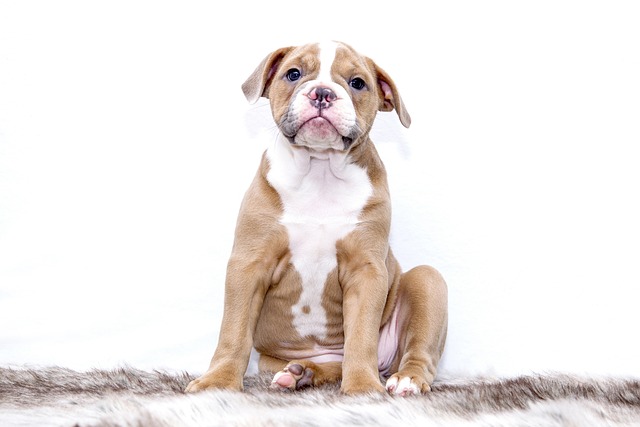
How can I tell if my dog's heatstroke is serious
Let’s be real: It’s a sticky August morning in Los Angeles, and you took your 2-year-old Golden Retriever, Max, for a walk a little later than usual
If you’ve ever watched your dog tilt their head like they’re listening to a secret, then suddenly shake it so hard their ears flap like flags, you might be dealing with an ear infection. A new pup parent in Georgia texted me last week, worried about her beagle: “He’s scratching his ear raw, and it smells weird—can I fix this at home, or do I need a vet?” Ear infections are common, especially in floppy-eared breeds like cocker spaniels or basset hounds, but home treatment works only for mild cases. Let’s break down what’s safe, what’s not, and when to call the pros.
First, why ear infections happen. Most start with moisture—after a bath, a swim, or even just humid weather—trapped in the ear canal. That dampness lets bacteria or yeast (think: tiny fungi) multiply, causing redness, itchiness, and that telltale “yeasty” smell. Dogs with lots of ear hair or allergies (to pollen, food, or dust) are more prone—their ears stay warmer and damper, creating the perfect germ party. A 2021 study in Veterinary Dermatology found that 80% of mild ear infections are yeast-related, which respond well to gentle cleaning—if caught early. But here’s the line: If your dog is in pain (yelping when you touch their ear), has pus or blood, or a fever, skip home treatment. That’s a job for the vet.
So what can you do at home for mild cases? Start with a vet-recommended ear cleaner—look for ones with ingredients like chlorhexidine (kills bacteria) or miconazole (fights yeast). Avoid “home remedies” like hydrogen peroxide, alcohol, or vinegar—they burn sensitive ear tissue and make things worse. My neighbor in Texas swears by a brand her vet suggested for her spaniel: “It’s like a gentle bubble bath for his ears.”

Here’s how to apply it: Sit on the floor with your dog between your legs (so they feel secure). Lift their ear flap gently (never yank—ear canals are delicate). Squirt in the cleaner as directed (usually 2-3 drops), then massage the base of their ear for 30 seconds—you’ll hear a squelching sound, which means it’s working. Let them shake their head to fling out gunk, then wipe the outer ear with a cotton ball. Reward with a treat afterward—this turns a “meh” task into a “treat time” ritual. A golden retriever owner in my park does this: “I say ‘ear spa!’ and he runs over—he knows a peanut butter treat is coming.”
Do this twice a day for 5-7 days. If symptoms (redness, odor, scratching) ease up, great. If not, or if they get worse, call the vet—they might need prescription drops. Never use human meds like antibiotic ointment—dog ears have different pH levels, and some ingredients (like steroids) can harm them if misused.
Now, let’s tie this to real-world norms. Legally, keeping your dog’s rabies vaccine current (required in all U.S. states) is key—ear infections rarely spread, but a healthy immune system (boosted by vaccines) helps them fight off germs faster. When out walking, if your dog is scratching their ear a lot, keep them away from tall grass or puddles—extra moisture will irritate it more. And always carry poop bags—even a sick dog’s mess needs cleaning (fines hit $200 in Denver).
In apartments, be mindful of noise: A dog shaking their head nonstop can bother neighbors, especially during quiet hours. Try short cleaning sessions right after playtime, when they’re tired. And skip scolding if they fidget—ear infections hurt, and stress makes them worse. Use treats and praise instead, like you would for training. A rescue dog I worked with in Portland hated ear touches until we paired cleaning with his favorite cheese—now he sits still, tail thumping.
At the end of the day, home treatment is about easing mild discomfort, not curing serious infections. Trust your gut: If something feels “off” (intense pain, weird discharge), your vet has the tools to help. With gentle care and a little patience, your pup’s ears will be back to flopping happily in no time.

Let’s be real: It’s a sticky August morning in Los Angeles, and you took your 2-year-old Golden Retriever, Max, for a walk a little later than usual

You're enjoying a summer afternoon at the park when you notice your dog has stopped panting and appears disoriented - their gums are bright red

Let’s paint the picture: You’re in your Denver apartment, watching your 4-year-old Boston Terrier, Ruby, plop down mid-play session with her favorite toy

Many dog owners notice their pets nails seem shorter after regular walks,but how much does this daily activity actually help?The answer depends on where you walk—concrete sidewalks or asphalt streets gently file nails as a dog's paws hit the ground

Most dog owners notice their pup scooting across the carpet at some point, but few connect it to impacted anal glands. These small sacs near a dog’s rectum secrete a scent for marking territory

Most vets agree that regular dog teeth cleaning is key to avoiding painful dental issues later. For healthy adult dogs, a professional cleaning at the vet’s office every 12 to 18 months usually works well.